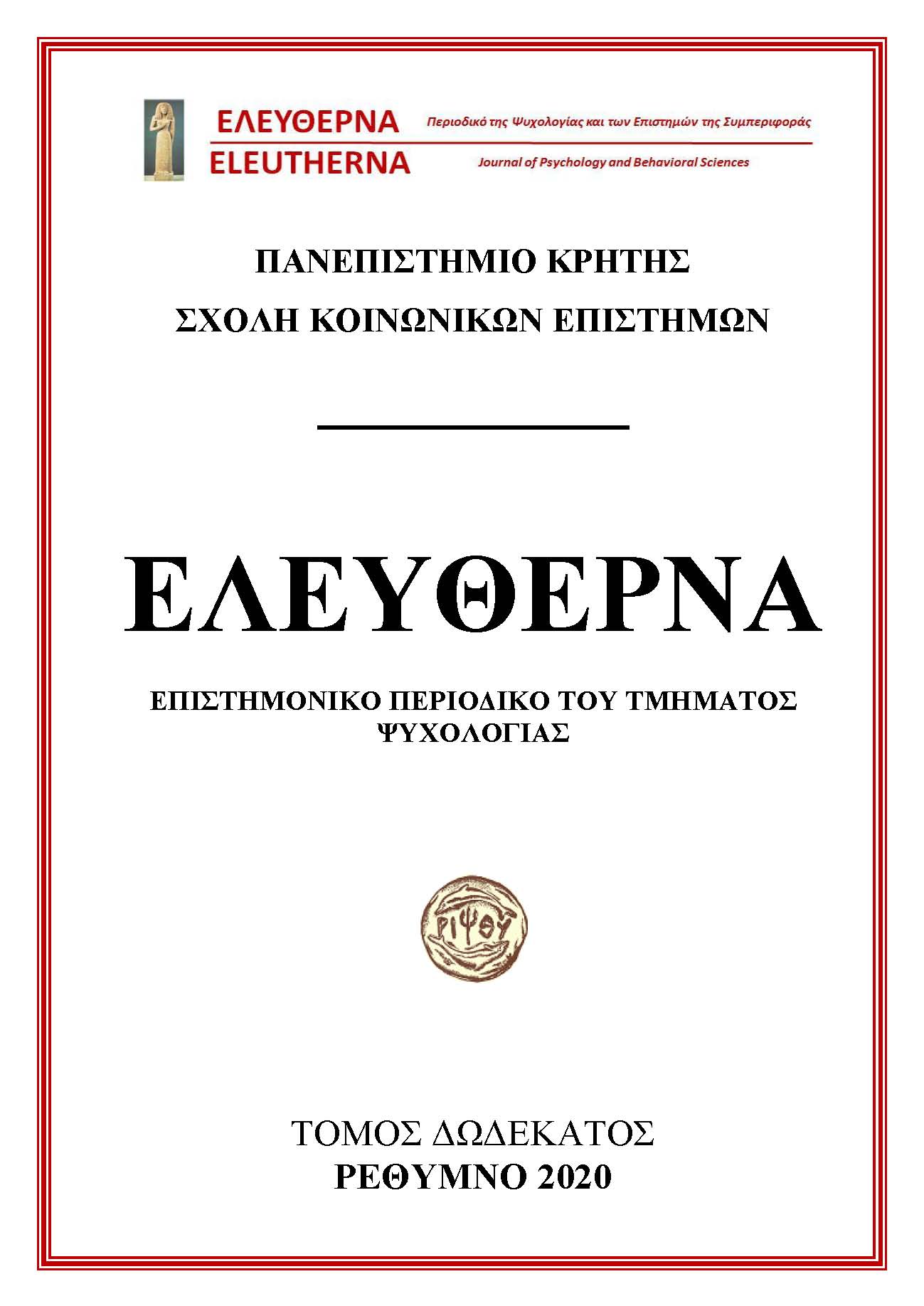Parenting styles, cognitive rumination and depression in a university student sample
DOI:
https://doi.org/10.26248/eleutherna.v12i0.1543Keywords:
parenting styles, rumination, depression, young adulthoodAbstract
A number of studies have shown that morbid rumination is related to a variety of psychological symptoms and especially to depression. The aim of the present research was to study the relationship among negative parenting styles in one’s childhood, cognitive rumination and depression in adulthood. We used the Greek translations of the Parenting Scale (PS), the Ruminative Response Scale (RRS), and the DASS-21-Depression subscale. The PS measures parental rearing/discipline behaviors, the RRS measures the positive and negative aspect of rumination (RRS-Reflection and RRS-Brooding, respectively), and the DASS-21-Depression measures symptoms of depression. Participants were 310 university students (85% female) of a mean age of 22.4 years. Although women did not differ from men in the frequency of self-reported negative parental behaviors or levels of depression, they exhibited significantly higher scores in RRS-Brooding (but not in RRS-Reflection). The Overreactivity scale of the PS correlated positively to depression and the RRS-Brooding subscale, but not to the RRS-Reflection subscale. A stepwise regression analysis showed that the DASS-21-Depression could be predicted mainly by the RRS-Brooding and secondarily, to a smaller extent, by the Overreactivity scale of the PS. Overreactive parental discipline behaviors during childhood and mainly brooding rumination can predict depression in young adults. A ruminative process that focuses on a reflective search for the understanding of negative feelings does not seem to be influenced by negative parenting styles in childhood, and does not seem to contribute to the development and possibly maintenance of current adult depressive symptoms.
Downloads
Published
How to Cite
Issue
Section
License
This work is licensed under a Creative Commons License Attribution-NonCommercial-ShareAlike 4.0 International (CC BY-NC-SA 4.0).
Under this license EJPBS provides immediate open access to its content on the principle that making research freely available to the public supports a greater global exchange of knowledge.


